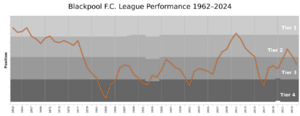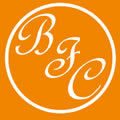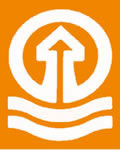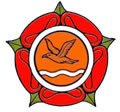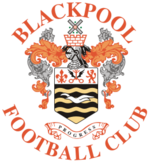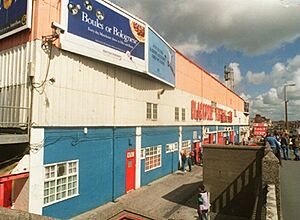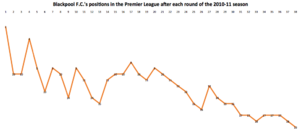History of Blackpool F.C. (1962–present) facts for kids
This is a history of Blackpool Football Club from 1962 to the present. For their history between 1887 and 1962, see History of Blackpool F.C. (1887–1962). For the club's season-by-season stats, see Blackpool F.C. seasons.
The history of Blackpool Football Club from 1962 until today tells the story of a famous English football team. After a very successful first half of the 20th century, the club faced some tough times.
Blackpool played in the top division, called Division One, from 1962 to 1967. Then, they were relegated to the second division for the first time in many years. After three seasons there, they returned to the top flight but only for one year. Between 1972 and 1982, Blackpool dropped even further, ending up in Division Four. In the 1982–83 season, they reached their lowest point, finishing 89th out of 92 League clubs.
Since then, Blackpool has managed to climb back up. After five promotions and one relegation, the club reached the Premier League, the very top of English football, in 2010–11. However, another difficult period followed from 2013 onwards. By the end of the 2014–15 season, the team had won only 15 league games out of 92. Under manager Gary Bowyer, Blackpool returned to the third division in 2017. They then climbed into the second division in 2021. Both of these promotions happened through the play-offs, showing the club's strength in these important matches.
Contents
The Post-Matthews Era: Changes and Challenges
After a time when there were limits on how much players could be paid, clubs like Blackpool found it hard to attract and keep top players.
In 1962–63, Ray Charnley scored 22 goals. A tough defender named John McPhee made his first appearance. A talented young player, Alan Ball, also joined the team. However, Bill Perry left the club after 13 years.
Blackpool played in an international tournament in Spain called the Costa del Sol tournament. They lost to Real Madrid but won against AS Monaco.
In the 1963–64 season, Blackpool almost got relegated again. Alan Ball was the top scorer with 13 goals. The next season wasn't much better, with the team finishing 17th. They went 15 games without a win, including 8 losses in a row. Ray Charnley scored 21 goals. Bigger clubs started to notice Alan Ball. Blackpool also made its first appearance on the TV show Match of the Day in November 1964, when Alan Ball scored three goals against Fulham.
In 1965, Blackpool toured New Zealand, playing against Sheffield United. Sheffield United won the series of games.
At the end of the 1965–66 season, after England won the 1966 World Cup Final with Alan Ball playing, he was sold to Everton for £112,000. This was a record amount for Blackpool at the time. New players like Hugh Fisher and Alan Taylor joined. Young Emlyn Hughes also made his debut but soon left for Liverpool. Ray Charnley and Alan Ball were the top scorers that season.
Blackpool was finally relegated to Division Two at the end of the 1966–67 season. They struggled at home but managed to beat Liverpool and Everton away. They also signed two new forwards, Alan Skirton and Alan Suddick, for a club-record fee of £63,000.
In February 1967, manager Ron Suart resigned and was replaced by the popular former player Stan Mortensen. Mortensen started to change the team, even selling Ray Charnley. He brought in new players like Gerry Ingram, Tom White, Tommy Hutchison, and Tony Green, who filled the gap left by Alan Ball.
In the 1967–68 season, Blackpool pushed hard for promotion. They won six games in a row and went into the final game needing a win to go up. They won 6–3, but their rivals, Queens Park Rangers, also won with a last-minute own goal, meaning Q.P.R. were promoted instead due to a slightly better goal difference.
For the next season, Mortensen continued to rebuild the team, selling several players to help the club's finances. New players included Bill Bentley and Terry Alcock. The team finished eighth, which disappointed fans. The board then decided to sack Mortensen, which surprised and angered many supporters. Former captain Harry Johnston took over as caretaker manager.
Les Shannon became the new manager in May 1969. He successfully led the club back to the First Division in his first season. Shannon signed players like Micky Burns, Dave Hatton, and experienced player Fred Pickering. Promotion was secured with a 3–0 win against rivals Preston North End, where Fred Pickering scored three goals. Many Blackpool fans traveled to the game, and their joy was even greater because the result also meant Preston was in trouble at the bottom of the league.
The 1970–71 season was very tough for Blackpool in Division One. They won only four games and were relegated. Even the return of Tony Green from injury didn't help. Manager Shannon resigned and Bob Stokoe was appointed in December 1970, but it was too late to save the club from relegation.
In the summer of 1971, Blackpool won the Anglo-Italian Cup. They beat Bologna 2–1 after extra time in the final. This victory gave the club a big boost. Thousands of fans welcomed them home.
For the 1971–72 season, Bob Stokoe started to change the squad. Long-serving player Jimmy Armfield retired after 17 years. New players included goalkeepers John "Budgie" Burridge and George Wood, and Keith Dyson. Tony Green left for a large fee. The team finished sixth in the league and reached the League Cup quarter-finals.
In 1972, Blackpool reached the Anglo-Italian Cup final again. They had a record 10–0 win over Vicenza in the group stage. However, they lost 3–1 to A.S. Roma in the final.
In the 1972–73 season, Blackpool finished seventh and reached the League Cup quarter-finals again. Manager Bob Stokoe left for Sunderland in November. Harry Potts became the new manager. In Potts' first season, 1973–74, Blackpool finished fifth, just missing out on promotion. The squad was strengthened with players like Wyn Davies, Mickey Walsh, and Paul Hart.
In May 1974, Blackpool won the "Caligaris" International Tournament in Italy, becoming the first English club to do so. They beat Napoli 3–1 in the final.
Over the next two seasons, Blackpool struggled to score goals. The board was not happy with the team's performance, and Potts left in May 1976. Potts had been good at buying and selling players for profit. Micky Burns and John Burridge were sold for large fees.
Allan Brown, a former Blackpool player, returned to manage the club for the 1976–77 season. He signed Bob Hatton, who formed a strong partnership with Mickey Walsh. Blackpool finished fifth, just two points short of promotion to Division One. Mickey Walsh scored 28 goals.
The 1977–78 season was one the club would want to forget. From a safe position in March, Blackpool won only one of their last 16 games and were relegated to Division Three for the first time in their history. Brown was sacked in February, and Jimmy Meadows took over as caretaker manager. This relegation started a long period of time for Blackpool in the lower divisions.
Many players left the club, including top scorers Mickey Walsh and Bob Hatton.
A Difficult Period and Rebuilding
Jimmy Meadows was replaced by Bob Stokoe in May 1978, as the club faced life in the Third Division. Despite goals from Derek Spence, the team struggled and finished in mid-table. Attendances at Bloomfield Road were very low. Stokoe left for a second time at the end of the 1978–79 season.
Stan Ternent became manager in the 1979–80 season. He kept the club safe in mid-table. However, the Blackpool board persuaded former player Alan Ball to return as manager. Ternent was dismissed in February 1980.
Alan Ball's return was met with great excitement, but it didn't go as planned. Blackpool finished 18th and avoided relegation only on the final day. Ball spent a lot of money on new players who didn't perform well. At the end of the 1980–81 season, Blackpool was relegated to the Fourth Division, the lowest tier, for the first time. Ball left three months earlier, and Allan Brown returned for his second time as manager.
Blackpool was in serious financial trouble. The club had paid a record £132,400 for Jack Ashurst two years earlier, but hadn't made that money back. Attendances were at an all-time low.
However, on the field, Blackpool adjusted well to Fourth Division football, finishing twelfth. A tall striker named Dave Bamber started to make a name for himself. The team also reached the fourth round of the FA Cup. In April, Brown resigned.
During the summer, new directors took over the club, promising stability. They hired Sam Ellis as the new manager. Ellis's first season was tough: Blackpool finished 21st, their lowest-ever position. This was part of a rebuilding plan.
Ellis looked for young players and free transfers because there wasn't much money for new signings. He also sold Dave Bamber and Colin Morris for good fees. Bamber's replacement, Paul Stewart, started scoring many goals. At the end of the 1983–84 season, Blackpool just missed out on promotion, finishing sixth. They also had a good FA Cup run, beating Manchester City.
The next season, with new players like Ian Britton and Eamon O'Keefe, the team finished second and were promoted to the Third Division. Sam Ellis became a hero to the fans.
Back in the third division in the 1985–86 season, Blackpool finished twelfth. They were in the top four until Christmas, but an injury to O'Keefe hurt their progress.
Off the field, the club faced big bills for the old Bloomfield Road stadium. There were even talks of moving the club to Preston. But after more changes in the boardroom, the club survived.
In 1986–87, many players moved. Paul Stewart was sold to Manchester City for £200,000. New defender Steve Morgan started to play well. By February, Blackpool was in a good position for promotion, but after Stewart left, they faded and finished ninth. Stewart was still the top scorer even after leaving.
Attendances dropped again. The style of play was criticized, and pressure on Ellis grew.
Blackpool finished 10th in 1987–88. The "discovery" of the season was Mark Taylor, who scored 23 goals.
Local businessman Owen Oyston became the new chairman in May 1988. Despite new players like Andy Garner and Tony Cunningham, Sam Ellis was sacked in April 1989. The team was struggling near the bottom of the table. Blackpool managed to stay up by winning four of their last five games.
Many new players joined for the 1989–90 season, signed by new manager Jimmy Mullen. Mullen's time was short. After spending a lot of money on players who didn't perform, and with the team heading for relegation, his contract ended.
The club had a good FA Cup run, reaching the fifth round, but in the League, Blackpool was relegated to the Fourth Division. Mullen left with seven games to play, and former player Tom White became caretaker manager, assisted by Billy Ayre, who later became the manager.
In June 1990, Graham Carr was appointed manager. In November, with the team in 18th place, Carr was sacked. His assistant, Billy Ayre, took over and transformed the team.
With only one new signing, the return of Dave Bamber, Blackpool climbed the table, losing only five of their remaining 30 games. They set new club records: 15 home League wins in a row and a 24-game unbeaten run at Bloomfield Road. Ayre brought new confidence to the players.
On January 5, 1991, Tottenham Hotspur visited Bloomfield Road for an FA Cup game. Tottenham, with England stars like Gary Lineker and Paul Gascoigne, won 1–0.
A Wembley Double: Play-off Drama
As the 1990–91 season ended, Blackpool was fighting for promotion. They went into the final game needing one point for automatic promotion but lost 2–0. This meant they had to go into the play-offs. After beating Scunthorpe United in the semi-finals, Blackpool reached Wembley for the first time in 38 years. Sadly, Stan Mortensen, one of the club's most famous players, died just after the semi-final.
About 15,000 Blackpool fans traveled to London for the play-off final. The game ended 2–2 after extra time, and for the first time, penalties would decide promotion. In the sudden death shootout, Dave Bamber missed his penalty, and Torquay United were promoted. Blackpool had to stay in the Fourth Division.
Despite the loss, Ayre was given a new contract. For 1991–92, Blackpool were favorites for promotion. They sold Alan Wright for a club-record £400,000.
Blackpool started the season strongly and stayed in the top four. They had a great run of 31 wins in 35 League games. However, they struggled away from home.
Again, Blackpool went into the final game of the season needing one point for promotion but lost 2–0. So, the play-offs would decide their future once more.
Blackpool faced Barnet in the semi-finals and won 2–1 on aggregate, meaning another trip to Wembley for the final. Their opponents were Scunthorpe United.
On May 23, 1992, in hot weather, 13,000 Blackpool fans watched another close game that ended 1–1 after extra time. Penalties were needed again. This time, Blackpool won! Scunthorpe's Jason White missed his penalty, and Blackpool was promoted back to the third tier after two years.
Managerial Changes and New Beginnings
Blackpool was a founding member of the new Division Two in the 1992–93 season, after the Premier League was formed. They just avoided relegation in the next two seasons.
In January 1993, Blackpool hosted a "Buy A Player" match, where money from ticket sales went to the manager for new players. The crowd helped pay for Andy Watson.
On May 1, 1993, Blackpool's draw at Burnley saved them from relegation. Billy Ayre said it was a bigger achievement than winning promotion.
Before the 1993–94 season, the club sold talented winger Trevor Sinclair for a club-record £600,000. Blackpool won the Lancashire Senior Cup, beating Manchester United, which included a young David Beckham. They successfully defended this title for the next two years.
At the end of the season, after Blackpool avoided relegation on the final day, chairman Owen Oyston decided it was time for a change and sacked Ayre. His replacement in July 1994 was Sam Allardyce.
In Allardyce's first season, 1994–95, Blackpool finished in the middle of the table. In 1995–96, Allardyce led the club to a third-place finish. Despite some big losses around Christmas, they recovered and even went top of the table in March. However, Allardyce was sacked after they lost to Bradford City in the play-off semi-finals, even though they had won the first leg away.
In May 1996, Owen Oyston faced legal issues, and his wife, Vicki, took over as chairman.
Allardyce's replacement was Gary Megson. During Megson's time, Blackpool played against Premier League side Chelsea in the League Cup in September 1996. It was the first time a Blackpool game was shown live on Sky Sports. Blackpool took an early lead but lost the first leg 4–1. They won the second leg 3–1 at Stamford Bridge, but Chelsea won the tie overall.
Nigel Worthington became manager for the 1997–98 season. He was later removed from his position two years later as Blackpool was heading for relegation.
In December 1998, a group tried to buy the club for £18 million. Chairwoman Vicki Oyston met with them to discuss a deal. She said that fan pressure had made her consider selling. In April 1999, Vicki Oyston officially stepped down, and her son, Karl, took over as chairman.
A week later, the club received £552,000 from the Sport England Lottery Fund for its youth development program.
In December 1999, Blackpool played Arsenal in the FA Cup. Arsenal won 3–1.
Revival and Premier League Dream
Steve McMahon became manager in early 2000, but he couldn't stop Blackpool from being relegated to Division Three.
During the summer, a group of players went to the Caribbean island of Saint Kitts for a tournament, which Blackpool won.
Blackpool returned to Division Two in their first attempt, through the play-offs. They were still in the third tier when McMahon resigned in 2004. They won the Football League Trophy twice under McMahon. Blackpool had a perfect record at the Millennium Stadium in Cardiff, where English cup finals were held while Wembley was being rebuilt.
In January 2003, Blackpool played their 4,000th match in the Football League.
McMahon's replacement was former Scotland captain Colin Hendry, who lasted just over a year. He was replaced by Simon Grayson. Grayson, with help from experienced coaches, guided the team to safety.
In December 2005, the Oyston family, the club's owners, said they were considering offers to buy the club. In May 2006, Valērijs Belokoņs, a businessman from Latvia, agreed to invest £5 million into the club. On June 29, 2006, Belokon invested in the playing side of the club, becoming the new president and a director. The team even traveled to Latvia for a pre-season tour. Belokon also bought a football club in Latvia to help provide players for Blackpool.
In the 2006–07 FA Cup, Blackpool reached the fourth round for the first time in 17 years. They finished third in the League, scoring the most goals in League One. After beating Oldham Athletic in the semi-final, they met Yeovil Town in the final at the new Wembley Stadium. Blackpool won 2–0, their tenth consecutive victory, and were promoted to The Championship. This was their 100th season in the Football League.
Blackpool knocked Premier League side Derby County out of the League Cup in August 2007. They reached the fourth round for the first time in 35 years but lost to Tottenham Hotspur.
Blackpool finished the 2007–08 season in 19th place, avoiding relegation by two points.
On December 23, 2008, Simon Grayson left the club to join Leeds United. His assistant, Tony Parkes, took temporary charge. Blackpool finished 16th.
On May 21, 2009, Ian Holloway was appointed manager. In July, club president Valeri Belokon set up a new fund to invest in players. Four days later, Blackpool broke their transfer record by signing Charlie Adam for £500,000.
Blackpool finished the 2009–10 season in sixth place in The Championship, their highest finish since 1971, earning a play-off spot. On the final day of the season, they needed to match Swansea City's result. Both games were draws, and Blackpool secured the last play-off place.
On May 8, Blackpool beat Nottingham Forest 2–1 in the semi-final first leg. Three days later, they won 4–3 (6–4 on aggregate) to reach the final against Cardiff.
Blackpool defeated Cardiff City 3–2 on May 22 in the Championship play-off final at Wembley Stadium. This win earned them promotion to the Premier League! It was Blackpool's first time in the Premier League since it started in 1992, and their first time in the top flight in 39 years. Blackpool became the only club to be promoted through all three tiers of the Football League using the play-off system.
On May 24, a Promotion Parade was held along Blackpool's promenade. About 100,000 people lined the route to celebrate with the team. Manager Ian Holloway said, "This is the most unbelievable moment of my life."
Back in the Top Flight and Another Decline
In their first-ever Premier League match, Blackpool defeated Wigan Athletic 4–0. They were briefly at the top of the league table. The game was played away because construction work at Bloomfield Road was not finished.
On May 22, 2011, exactly one year after their promotion, Blackpool were relegated back to The Championship. They lost 4–2 at Manchester United on the final day of the season.
After failing to return to the Premier League in their first attempt (losing to West Ham in the play-off final), Ian Holloway resigned in the 2012–13 season to join Crystal Palace. He had managed Blackpool for 105 League games and 38 Premier League games.
Steve Thompson took temporary charge. Michael Appleton was appointed manager but resigned after only two months to join Blackburn Rovers, becoming Blackpool's shortest-serving manager.
Steve Thompson again stepped in as caretaker manager. Former Manchester United and England captain Paul Ince was named Blackpool's third manager of the season in February 2013. His son, Tom, was a player in the squad.
Under Ince, Blackpool had their best-ever start to a League season, earning 16 points from 18. However, a run of nine defeats in ten games led to Ince being sacked in January 2014. Club captain Barry Ferguson became caretaker manager, but the club won only three more games and finished 20th, just avoiding relegation.
On June 11, 2014, Belgian José Riga became Blackpool's first overseas manager. He was removed from his duties four-and-a-half months later, with the club at the bottom of the table. Lee Clark replaced him. Clark resigned after the 2014–15 season, when Blackpool were relegated to the third tier.
Neil McDonald became the new manager in summer 2015. He oversaw Blackpool's relegation to the bottom tier for the first time in 15 years at the end of his only season in charge.
Gary Bowyer was appointed McDonald's successor in June 2016, becoming Blackpool's eighth manager in three-and-a-half years. Bowyer guided the team back to the third tier in his first season, beating Exeter City in the League Two play-off final. This made Blackpool the most successful side in English play-off history, with five promotions.
In November 2017, the Oyston family put Blackpool up for sale. Gary Bowyer resigned in 2018 and was replaced by his assistant, Terry McPhillips.
In February 2018, Owen Oyston removed his son Karl from his role as chairman and appointed his daughter, Natalie Christopher. The following February, the football club was put into receivership by the High Court, and Owen Oyston was removed from the board.
Life After the Oystons: A New Era
On June 13, 2019, local businessman Simon Sadler became the club's new owner, ending the Oyston family's 32-year ownership.
On July 5, 2019, Terry McPhillips resigned as manager. Simon Grayson returned to the role but was sacked in February, six months into the season. Neil Critchley became the club's 38th full-time manager.
At the end of the next season, Critchley's first full season, Blackpool were promoted back to the second tier of English football after a six-year absence. They won the 2021 EFL League One play-off final, marking Blackpool's sixth victory in eight play-off final appearances.
On June 2, 2022, Neil Critchley resigned to join Aston Villa as assistant head coach. Just over two weeks later, former manager Michael Appleton was appointed as his successor. Appleton was sacked seven months later. Veteran manager Mick McCarthy took over but left after a loss to Cardiff City. Interim manager Stephen Dobbie could not keep them in the division, and Blackpool were relegated to League One in April 2023.
Neil Critchley returned for a second time as manager in the summer of 2023. In the 2023–24 season, Blackpool finished eighth in League One, just two places outside the play-off spots.
See also
 | John T. Biggers |
 | Thomas Blackshear |
 | Mark Bradford |
 | Beverly Buchanan |


